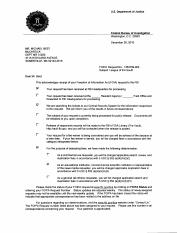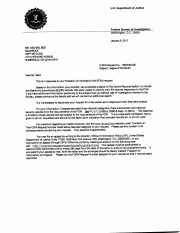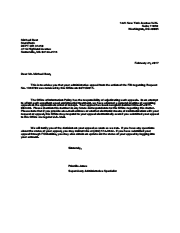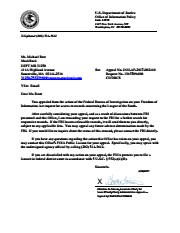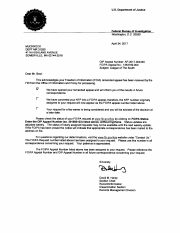League of the South
| Tracking # |
1363709-000 |
| Submitted | Dec. 23, 2016 |
| Est. Completion | None |
MuckRock users can file, duplicate, track, and share public records requests like this one. Learn more.
Communications
From: Michael Best
To Whom It May Concern:
This is a request under the Freedom of Information Act. I hereby request the following records:
Records relating to or mentioning the League of the South AKA the Southern League, a neo-Confederate group that advocates for a second Southern secession and a society dominated by “European Americans.” The league believes the “godly” nation it wants to form should be run by an “Anglo-Celtic.”
The “godly” nation envisioned by the League should be run by an “Anglo-Celtic” (read: white) elite that would establish a Christian theocratic state and politically dominate blacks and other minorities. Originally founded by a group that included many Southern university professors, the group lost its Ph.D.s as it became more explicitly racist. The league denounces the federal government and northern and coastal states as part of “the Empire,” a materialist and anti-religious society. In recent years, it has become increasingly rabid, writing about potential violence, criticizing perceived Jewish power, and warning blacks that they would be defeated in any “race war.”
Founded in 1994 as the Southern League (it was forced to change its name after a minor baseball league threatened to sue), the overarching mission of the League of the South (LOS) is to accomplish what the Civil War did not — Southern secession. The LOS’ first meeting featured a group of some 40 men, most of them Southern professors. It was and still is led by Michael Hill, who was then a British history professor and specialist in Celtic history at Stillman College, a historically black school in Tuscaloosa, Ala. (Hill has since left his teaching position.)
From the start, the league’s board was dominated by academics. Its unofficial foundational text was Cracker Culture, a book by conservative history professor Grady McWhiney, one of Hill’s mentors, which asserts that the South was populated by immigrants from Celtic areas of England and constitutes a culture and population distinct from that of the North. At the beginning, it only suggested that Southern secession might become necessary if the rest of America did not straighten out.
The LOS grew quickly — “like kudzu,” according to Hill — as white Southerners attracted by the group’s academic veneer and its initial insistence that it was not racist joined up. Within four years of its creation in 1994, the league had recruited 4,000 members. Initially, it seemed to concentrate on a cultural defense of the South, complaining bitterly of the treatment Southerners received in the mainstream media. But it wasn’t long before the group began seriously advocating a second secession, calling for a theocratic form of government, and openly advocating a return to “general European cultural hegemony” in the South.
In the 1990s, the LOS became active in traditional politics. In 1996, it helped orchestrate a successful “Dump Beasley” campaign in South Carolina, where then-Gov. David Beasley, a moderate Republican, supported removing the Confederate battle flag from atop the state Capitol dome. But hints of the group’s future radicalism — the raw anger the league now openly directs at blacks and other minorities — were evident early in its evolution. A year before the campaign against Beasley, Hill had joined a crowd of angry whites, including some professional white supremacists, at the funeral of Michael Westerman, a white man murdered by a black youth, ostensibly for flying the Confederate flag on his pickup truck. At that event, according to Tony Horwitz’s book Confederates in the Attic, Hill declared it was “open season” on anyone who dared to question “the illicit rights bestowed on a compliant and deadly underclass that now fulfills a role similar to that of Hitler’s brown-shirted street thugs of the 1930s.” He was referring to black people.
Along with its academics, the LOS included racist hard-liners from the start. One founding member who still sat on the board of directors in 2007 was Jack Kershaw, a lifelong segregationist who once was an official in the anti-integration White Citizens Councils of the 1950s and 1960s. Kershaw has never hidden his racist views. “Somebody needs to say a good word for slavery,” Kershaw told a reporter in 1998. “Where in the world are the Negroes better off today than in America?”
The LOS, which originally had bragged about the fact that the Southern Poverty Law Center (SPLC) did not then list it as a hate group, quickly became more radical. It came out against interracial marriage. Hill publicly defended antebellum slavery as “God-ordained” and another league leader described segregation as necessary to racial “integrity” of both races, black and white alike. Hill called for a hierarchal society composed of “superiors, equals and inferiors, each protected in their legal privileges” and attacked egalitarianism as a “fatal heresy.” He said people other than white Christians would be allowed to live in his South, but only if they bowed to “the cultural dominance of the Anglo-Celtic people and their institutions.” Where the goal of secession was once largely rhetorical, it became a seriously stated aim.
In 2000, with the group now claiming some 9,000 members (that number would soon grow to 15,000), the SPLC began listing the LOS as a hate group.
In the first years of the new century, the LOS steadily grew more powerful, to the point where for a time it stood at the nexus of the larger neo-Confederate movement. Its ideas about the “Anglo-Celtic” nature of the South were widely accepted by other “pro-South” groups, and it worked with other racist groups like the Council of Conservative Citizens to promote rallies supporting the Confederate battle flag. The LOS took a leadership role in a huge 2000 pro-flag rally in Columbia, S.C., and later the same year also organized a large pro-flag rally in Montgomery, Ala., calling for “Southern Cultural Independence” from the rest of the nation.
Remarkably, the LOS has found a few staunch defenders in the major media, particularly former member Robert Stacy McCain. For years, McCain was a key writer at the ultraconservative — but influential — Washington Times. Even after the Intelligence Report in 2000 exposed McCain’s relationship to the LOS — and the fact that he had published sympathetic essays on the group’s website — Times editors kept him on and even assigned him to cover neo-Confederate events. He resigned years later during a purge of extremist personnel at the newspaper.
Things started falling apart for the LOS in 2001. Within days of the Sept. 11 terrorist strikes in New York City and Washington, D.C., Hill suggested that the attacks were deserved, “the natural fruits of a regime committed to multiculturalism and diversity.” This did not go over well, provoking an exodus of members. Perhaps the most significant blow of all came with the resignation of Donald Livingston as head of the Institute for the Study of Southern Culture and History, the “educational arm” of the LOS, which runs workshops and disseminates books and pamphlets. A professor of philosophy at Emory University, Livingston told the Report that he was put off by the group’s racism and other “political baggage.”
The LOS’ veneer of professorial respectability has been pierced numerous times, but perhaps never so dramatically as in the case of Michael Tubbs, who in the early 2000s was a leading LOS activist in Florida. In 2004, the Report revealed that Tubbs was actually a convicted “Aryan” terrorist, a man who while in the military had robbed fellow soldiers at gunpoint of their weapons. (During one such theft, he and an accomplice had reportedly shouted, “This is for the KKK!”) When he was arrested, officials found several arms and explosives caches along with lists of targets that included newspapers, television stations and businesses owned by Jews and blacks. When these embarrassing facts were revealed, Hill and other LOS leaders allowed Tubbs to stay on, saying he’d paid his debt to society.
The group’s increasingly hardline positions and recruits have driven many members away. By 2004, many of the group’s original founders — including Hill’s mentors who shepherded him through his history Ph.D. at the University of Alabama, Grady McWhiney and Forrest McDonald — had denounced him. At a 2005 strategy meeting, the LOS struggled to find a handful of interested persons to attend. By 2009, Hill was claiming 25,000 members, but that seemed extremely implausible.
In the fall of 2013, the LOS again shifted its strategy, cloaking its hardline positions in new rhetoric centered on “Southern demographic displacement.” With this new approach, the primary focus of the LOS became small-scale street demonstrations – a rarely more than 30 people, centered on more mainstream issues such as immigration and “traditional marriage.” This tactical change mirrors the strategy long employed by the Council of Conservative Citizens, an organization that shares a large number of members with LOS. Participants are held to a strict dress code and are not allowed to stray from scripted, LOS-sanctioned messages while demonstrating. The use of the Confederate battle flag was also banned in favor of amore innocuous “Southern nationalist flag,” a black St. Andrews cross over a white background.
Since 2014, the LOS has also led a billboard campaign, erecting signs reading “#SECEDE” on major highways throughout the southeastern United States. The group successfully erected billboards in Florida, Tennessee, Georgia, Alabama and Arkansas, and secured up to $10,000.00 in matching donations from an anonymous donor for future billboards.
The LOS reached an unprecedented level of radicalization in the fall of 2014 with the formation of a uniformed, paramilitary unit called the “Indomitables.” The group, which was conceptualized at the 2014 national conference, was the result of years of increasingly violent rhetoric from the group. Its training director, Floyd Eric Meadows, is a veteran of both the U.S. Army and navy with 12 years of service. After a representative of the Southern Poverty Law Center attempted unsuccessfully to contact LOS president Michael Hill, a post appeared on Hill’s personal Facebook stating: “Even if we are – and you really have no idea on earth if we are or not – setting up a Southern militia or some other form of paramilitary organization, we are doing nothing that free men have not done for centuries. Deal with it and stop your whining.”
On April 11, 2015, the LOS hosted an event celebrating the assassination of President Abraham Lincoln. Organized by the vice chairman of the Maryland-Virginia chapter of the League, Shane Long, the event “commemorate[d] the actions of Mr. John Wilkes Booth of Maryland who, motivated by the tyranny his Southern people faced, answered his calling with courage and fortitude.” The LOS’s main Facebook page put it even more bluntly: “Join us in April to celebrate the great accomplishment of John Wilkes Booth. He knew a man who needed killing when he saw him!”
Please conduct a search of the Central Records System, including but not limited to the Electronic Surveillance (ELSUR) Indices, the Microphone Surveillance (MISUR) Indices, the Physical Surveillance (FISUR) Indices, and the Technical Surveillance (TESUR) Indices, for both main-file records and cross-reference records of both HQ and all field offices for all relevant names, agencies, organizations, companies and events including but not limited to those cited in the previous paragraphs and/or links as well as a cross-reference with the Southern Poverty Law Center to include any information provided by the SPLC. My request includes but is not limited to 137, 157, 176, 177, 183, 184, 188, 214 and 266 files. If previously released records are available, then I request a rolling release consisting of those records while additional records are located and processed for release.
I am a member of the news media and request classification as such. I have previously written about the government and its activities for AND Magazine, MuckRock and Glomar Disclosure and have an open arrangement with each. My articles have been widely read, with some reaching over 100,000 readers. As such, as I have a reasonable expectation of publication and my editorial and writing skills are well established. In addition, I discuss and comment on the files online and make them available through the non-profit Internet Archive, disseminating them to a large audience. While my research is not limited to this, a great deal of it, including this, focuses on the activities and attitudes of the government itself. As such, it is not necessary for me to demonstrate the relevance of this particular subject in advance. Additionally, case law states that “proof of the ability to disseminate the released information to a broad cross-section of the public is not required.” Judicial Watch, Inc. v. Dep’t of Justice, 365 F.3d 1108, 1126 (D.C. Cir. 2004); see Carney v. U.S. Dep’t of Justice, 19 F.3d 807, 814-15 (2d Cir. 1994). Further, courts have held that "qualified because it also had “firm” plans to “publish a number of . . . ‘document sets’” concerning United States foreign and national security policy." Under this criteria, as well, I qualify as a member of the news media. Additionally, courts have held that the news media status "focuses on the nature of the requester, not its request. The provision requires that the request be “made by” a representative of the news media. Id. § 552(a)(4)(A)(ii)(II). A newspaper reporter, for example, is a representative of the news media regardless of how much interest there is in the story for which he or she is requesting information." As such, the details of the request itself are moot for the purposes of determining the appropriate fee category. As such, my primary purpose is to inform about government activities by reporting on it and making the raw data available and I therefore request that fees be waived.
The requested documents will be made available to the general public, and this request is not being made for commercial purposes.
In the event that there are fees, I would be grateful if you would inform me of the total charges in advance of fulfilling my request. I would prefer the request filled electronically, by e-mail attachment if available or CD-ROM if not.
Thank you in advance for your anticipated cooperation in this matter. I look forward to receiving your response to this request within 20 business days, as the statute requires.
Sincerely,
Michael Best
From: FOIPARequest
Good afternoon,
The FBI has received your Freedom of Information Act/Privacy (FOIPA) request and it will be forwarded to Initial Processing for review. Your request will be processed under the provisions of FOIPA and a response will be mailed to you at a later date.
Requests for fee waivers and expedited processing will be addressed once your request has been assigned an FOIPA request number. You will receive written notification of the FBI’s decision.
Information regarding the Freedom of Information Act/Privacy is available at http://www.fbi.gov<http://www.fbi.gov>/ or http://www.fbi.gov/foia/<http://www.fbi.goiv/foia/>. If you require additional assistance please contact the Public Information Officer.
Thank you,
Holly Early
Government Information Specialist
Record/Information Dissemination Section (RIDS)
FBI-Records Management Division
170 Marcel Drive, Winchester, VA 22602-4843
PIO: (540) 868-4593
Direct: (540) 868-4854
Fax: (540) 868-4391/4997
E-mail: foiparequest@ic.fbi.gov<mailto:foiparequest@ic.fbi.gov>
Questions E-mail: foipaquestions@ic.fbi.gov<mailto:foipaquestions@ic.fbi.gov>
Do you have further questions about the FOI/PA process? Visit us at http://www.fbi.gov/foia
Please check the status of your request online at https://vault.fbi.gov/fdps-1/@@search-fdps. Status updates are performed on a weekly basis.
-

~WRD137
From: Federal Bureau of Investigation
An acknowledgement letter, stating the request is being processed.
From: Federal Bureau of Investigation
A no responsive documents response.
From: Michael Best
I am appealing the integrity of the search, based on but not limited to the failure to perform searches for ALL indices specified, the failure to search field offices as specified and the failure to perform the cross-reference searches requested using the ample information I provided in the original request.
From: OIP-NoReply@usdoj.gov
02/22/2017 04:26 PM FOIA Request: DOJ-AP-2017-002440
From: OIP-NoReply@usdoj.gov
DOJ-AP-2017-002440 has been processed with the following final disposition: Completely reversed/remanded.
From: Federal Bureau of Investigation
A letter stating that the request appeal has been received and is being processed.
From: Muckrock Staff
To Whom It May Concern:
I wanted to follow up on the following request, copied below. Please let me know when I can expect to receive a response.
Thanks for your help, and let me know if further clarification is needed.
From: Muckrock Staff
To Whom It May Concern:
I wanted to follow up on the following request, copied below. Please let me know when I can expect to receive a response.
Thanks for your help, and let me know if further clarification is needed.
From: Federal Bureau of Investigation
A no responsive documents response.
Files
pages
